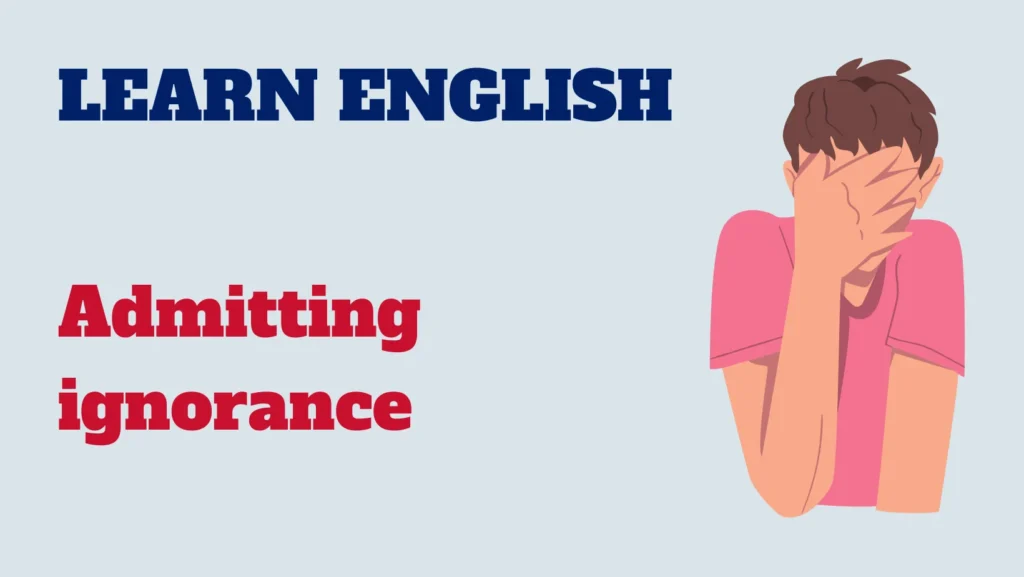When you’re learning a new language, it’s perfectly normal not to have all the answers. Knowing how to admit your ignorance is a valuable skill that can help you communicate effectively, learn more, and connect with native speakers.

In this lesson, we’ll explore different ways to say you don’t know something in English while remaining polite and respectful.
I don’t know – The standard response
The simplest and most direct way to say you don’t know something in English is “I don’t know.”
Example:
Q: What is the capital of Luxembourg?
A: I don’t know..
I have no idea – A stronger response
If you’re truly uncertain and want to emphasize that you have absolutely no idea, you can say “I have no idea.”
Example:
Q: When was this church built?
A: I have no idea.
I’m not sure – A moderate response
To express a more moderate uncertainty, you can say “I’m not sure.”
Example:
Q: Is the museum open today?
A: I’m not sure.
I have no knowledge on this subject – A more formal response
If you want to be more formal in your response, you can say “I have no knowledge on this subject.”
Example:
Q: Can you explain Einstein’s theory of relativity?
A: I have no knowledge on this subject.
I have no experience in this field – A specific response
When talking about a specific area where you have no expertise, you can say “I have no experience in this field.”
Example:
Q: Can you give me advice on French cooking?
A: I have no experience in this field.
It’s entirely acceptable to admit your ignorance when learning a new language. Use these expressions to indicate that you don’t know something while continuing to progress in your English learning. This will help you establish connections with native speakers and deepen your understanding of the language. Happy practicing, and keep learning!



